2 Ars Electronica New World

Ars Electronica Reception
Presentation of two GOLDEN NICA’s of the Prix Ars Electronica in the categories "Pioneers of Media Arts" and "u19–create your world.
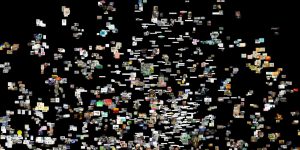
Networked Archives
Oliver Grau (DE), Dagmar Schink (AT), Christiane Paul (DE/US), Mariano Sardón (AR), Rafael Lozano-Hemmer (MX/CA), Manuela Naveau (AT)
Panel - In a world in which we increasingly rely on online content, media art archives and platforms are no exception. The Networked Archives panel addresses their role in making media art accessible online, and highlights various approaches to the field. As archives and metadata are central issues and the base for the digital content sector they are evolving into important online value chains. How can archives be monetized, contribute to the developments in the media art markets and form base for online platforms?

Best Practices for the Conservation of Media Art from an Artist's Perspective
Rafael Lozano-Hemmer (MX/CA)
Talk - For the past five years, media artist Rafael Lozano-Hemmer has been developing a system of procedures to help his studio deal with the maintenance of hundreds of computerized artworks that are in collections around the world. In this talk, Rafael will go over the main methods to accomplish this, in the hope that other artists will adopt them and create realistic expectations for potential collectors.
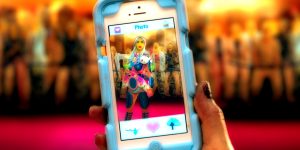
Business Models for Online Contents
Brendon Ciecko (US), Ulvi Kasimov (UK) and Aleksandra Artamonovskaja (CZ/UK), Sabine Seymour (AT) Moderators: Nathalie Pichard (CH), Thierry Baujard (FR)
The panel Business Models for Online Contents will investigate various entrepreneurial endeavors of platform-based access to online content, and how they are monetized. Crowdfunding, licenses or subscription models are only a few of the strategies institutions have to generate revenues in cultural & creative industries, and to secure revenue for artists and content developers.
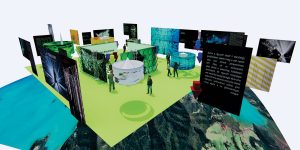
Get.Inspired
Alejandro Martin (ES), Bjorn Lustic (US), Holger Volland (GE), Jens Heithecker (GE), Patrick Tomelitsch (AT), Becky Lees (UK), Cyberballet (DE), Mikael Fock (DK), Sabine Seymour (AT)
This year’s Get Inspired session seeks to cover a vast array of interesting, diverse practices and approaches with a focus on digital and virtual projects, virtual events, platforms and contents. The panel will present examples from events, fairs, tourism, performance venues and museums.
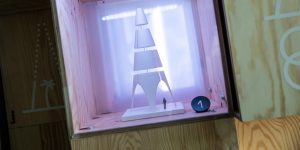
Austria makes Sense - Trip to the Austrian Pavilion at the World Expo in Dubai
The world exhibition Expo 2020, bearing the motto Connecting Minds, Creating the Future, is the first world exhibition in an Arab country. The "Expo" is one of the major international exhibitions recognised by the Bureau International des Expositions (BIE).
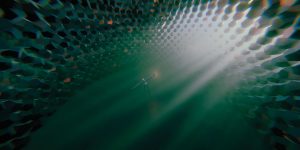
AI x Uncertainty
Jurij Krpan (SL) Speakers: Christl Baur (AT), Suzanne Livingston (UK), Špela Petrič (SL), Stephanie Dinkins (US)
The AIxUncertainty panel focuses on the limitations and uncertainties artists face when developing their work in the frame of AI. What are the challenges for collaboration at the intersection of AI and the arts? What progress can be seen, and where is it failing? What problems do artists face? What frameworks must be created for artists to access their latest research?
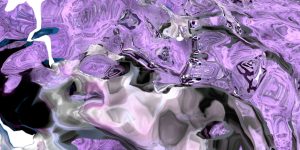
Women in Art, Science and Technology
Marta de Menezes (PT), Dalila Honorato (GR/PT), Ebru Yetiskin (TR), Ionat Zurr (AU), Jo Wei, Kathy High (US), Laura Beloff (FI), María Antonia González Valerio (MX), Victoria Vesna (US)
The panel On Roots and Fruits is a collection of talks from some of the founding members of FEMeeting: Women in Art, Science and Technology on the impact of its conferences and other community activities, and their perspective on the future development of women in art, science and technology. FEMeeting aims to disseminate projects carried out by individuals who identify as women to contribute to (a) the development of research methodologies in art and science and (b) the development of collaboration strategies that can increase knowledge-sharing and bring communities together.

The Women in Media Art: Telematic Performance
Ximena Alarcón (UK/CO), Anat Ben David (UK/IL), Alex Murray-Lesley (ES/NO/AU), Tina Frank (AT), Claudia Schnugg (AT)
This panel will investigate approaches in telematic collaborative art production and telematic art reception through the voices of four artists and researchers experienced in the cutting/edge production of telematic performances and collaborative music production.

Women in Media Arts
Ars Electronica (AT)
In 2016, Ars Electronica launched one of the largest online databases for women in media arts. This database, first dedicated to the women pioneers of Ars Electronica, was then opened to all female artists working with digital means as a tool for artistic expression. A whole program focus was thus established and will be presented this year in two panels.
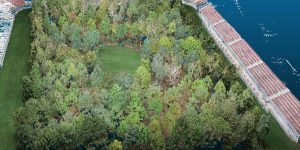
AI x Ecology
Carla Gomes (US/PT), Tega Brain (AU), Mark Coeckelbergh (BE), Lynn Kaack (DE), Stafano Nativi (IT), Claire Monteleoni (US), Martina Mara (AT)
The panel on AIxEcology will focus on the importance of computer-controlled systems for ecology and the environment. Artificial intelligence can be used to save water, stop species loss or detect plants in the field. By optimizing the monitoring of ecosystems, a significant contribution can be made to reduce the risk of climate change and counteract it, as more and more projects try to fight it through data and artificial intelligence.
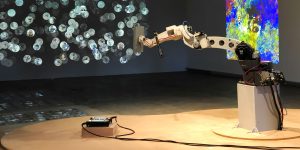
The New Real: Experiental AI and the AI Lab
Jake Elwes (UK), Drew Hemment (UK), Caroline Sinders (US), Anna Ridler (UK), Mahir Yavuz (TR)
The New Real explores the boundary between the real and the artificial as we attempt to emerge into and understand the so-called New Normal. Individual and collective resilience is predicated on the wider use of networked, online tools and environments by the majority of the population in a huge diversity of professional, domestic and leisure settings. At the same time, the crisis is unfolding in a context in which trust in data-driven online content and interaction are being challenged like never before.
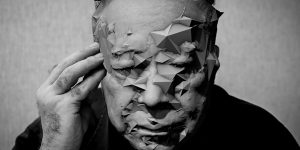
AI x Humanity
Rasha Abdul-Rahim, Adam Harvey (US/DE), Nye Thomson (UK), Milena Marin (RO), Victoria Vesna (US)
A series of panel discussions will be presented as part of the European ARTificial Intelligence Lab this year. Every evening, there will be one panel dedicated to a different topic, aiming to elucidate and educate about the impact of AI on society. The panels will bring AI related scientific, technological and artistic experts together in order to contribute to a critical and reflective debate beyond the technological and economic horizon of artificial intelligence.

Ars Electronica AIxMusic Online Hackathon: Final Presentations
Annelies Termeer (NL) moderator + Participants
For the occasion of the first online Festival, Ars Electronica will host its first international AIxMusic Hackathon as part of the AIxMusic Festival 2020.
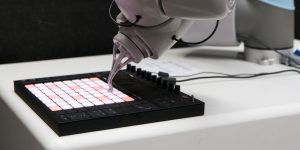
AIxMusic - Artificial Stupidity
Moisés Horta-Valenzuela (MX/US), Artemi-Maria Gioti (GR), Ali Nikrang (AT), Alex Braga (IT) and Portrait XO (US)
The panel on Artificial Stupidity invites artist present at the Ars Electronica Festival to share their experiences in the context of AIxMusic. AI is a media trend right now and a controversial topic.
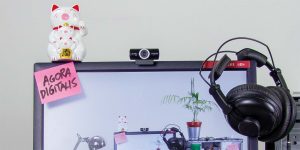
A Theory of Change
Anne Nigten (NL)
The STARTS Prize is an annual European prize for innovative projects at the interface of Science, Technology, and the ARTS. This article reflects on the most striking outcomes of a study that was conducted in the spring of 2020, to evaluate the first three STARTS Prize editions. The STARTS Prize aims to promote art as a catalyst for change and innovation in the fields of technology, science and the social sphere. It has mobilized an impressive number of artists, designers and engineers and built a strong brand in recent years.
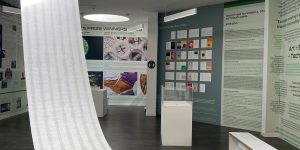
Mapping Collaborative Practice
Denise Doyle (UK), Richard Glover (UK), Martin Khechara (UK), Christian Cherene (ES), Norma Deseke (DE), Pei-Ying Lin (TW), Miranda Graaf (NL), Giulia Tomasello (IT), Tommaso Busolo (IT)
Interdisciplinary collaboration across the arts and sciences can create friction and uncertainty between creative partners from different backgrounds. How can we overcome these moments, and are they integral to any collaborative or emergent process? What role does art and science collaboration have in addressing global challenges in 2020? Chaired by Richter Glover and Martin Khechara, participants and researchers of the University of Wolverhampton’s STARTS Methodologies research project take part in this digital exchange of ideas.
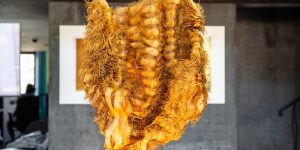
STARTS Prize Exhibition Tour
The annual STARTS Prize Exhibition presents a selection of current best practice examples at the intersection of science, technology and the arts. Kristina Maurer and Karla Spiluttini take the viewers on a journey through this year’s exhibited projects in Kepler’s Garden. From circular economy to the relationship between ecology and technology, through digital humanism and empathic approaches to artificial intelligence, the exhibition shows the outstanding diversity of artistic practice in the STARTS field.
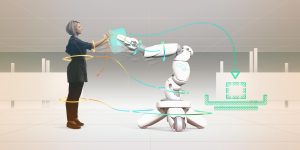
Salon Universitas
Melanie Baumgartner (AT), Florian Hartmann (AT), Christoph Guger (AT), Markus Hohenwarter (AT), Alicia Hofstätter (AT), Corinna Hörmann (AT), Martina Mara (AT), Kathrin Meyer (DE), Christopher Lindinger (AT)
This session brings together four of the exhibited teams – the LIT Robopsychology Lab, the JKU Linz School of Education, the LIT Soft Material Lab and the Institute for Integrated Circuits and their collaborative partner g.tec Medical Engineering – to discuss their creative process and prototype development.

STARTS Prize Forum: Andrea Ling
Andrea Ling (CA)
Andrea Ling, winner of this year’s Grand Prize for Artistic Exploration, introduces her winning project “Design by Decay, Decay by Design”, a series of artifacts that exhibit designed decay developed for the 2019 Ginkgo Bioworks Creative Residency on how to design a world without waste and talks about her artistic and creative process.


